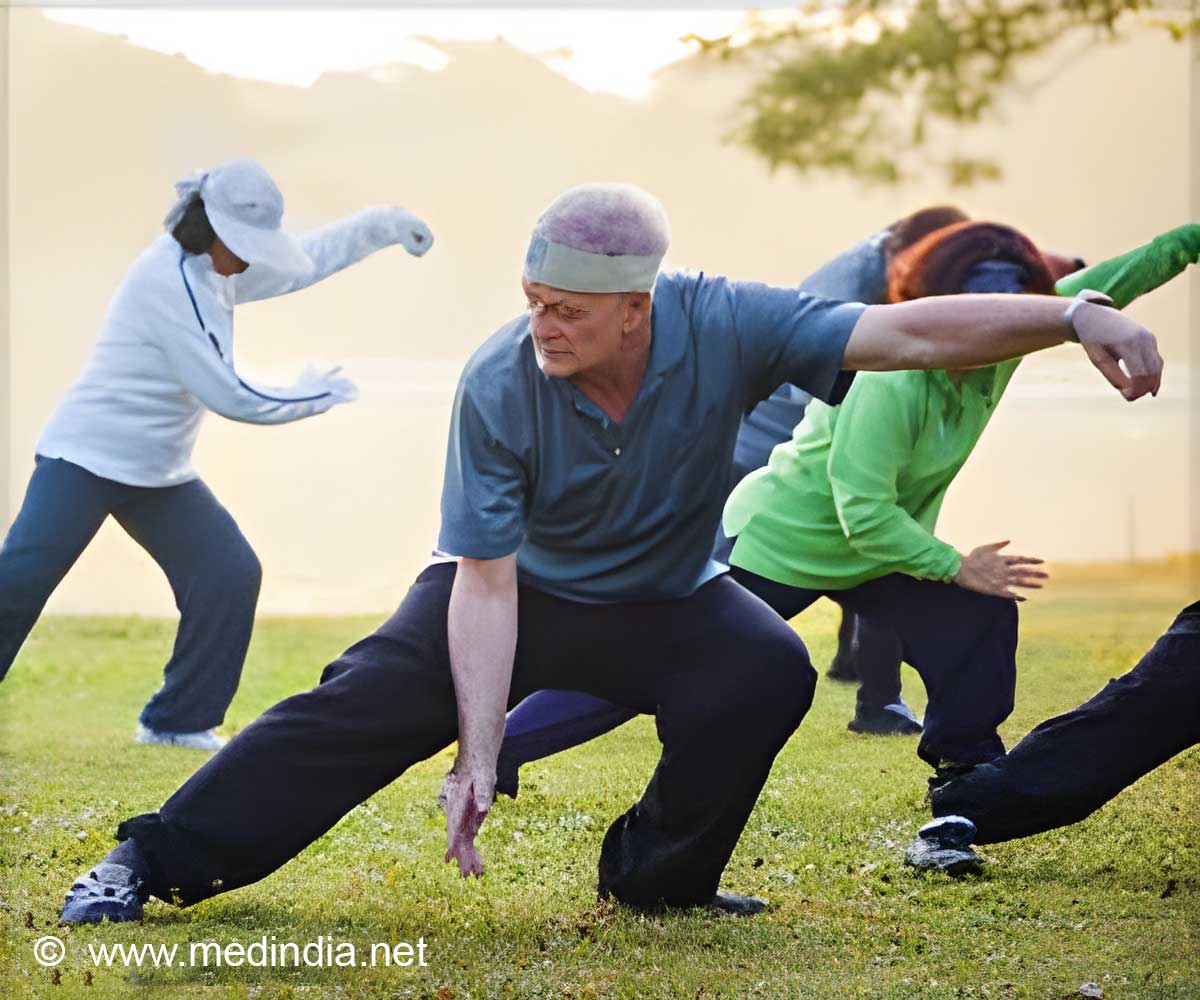Tai chi holds the potential to reduce depression, anxiety, and stress along with improved sleep in people after they had a stroke

‘Tai chi holds the potential to reduce depression, anxiety, and stress along with improvement in sleep among post-stroke survivors. However further analysis is required to interpret the benefits of tai chi for a larger group of people post-stroke.
’





Tai chi is a type of exercise that focuses on releasing tension in the body, incorporating mindfulness and imagery into movement, increasing awareness and efficiency of breathing and promoting overall relaxation of body and mind. "Mind-body interventions are commonly used among adults to lessen depressive symptoms. Tai chi practice allows the individual to quiet the mind by dwelling in the present and setting aside unnecessary negative emotions, such as depression," says study author Dr. Ruth Taylor-Piliae of the University of Arizona, Tucson, US.
Benefits of Tai-chi
The small study enrolled 11 stroke survivors (55% were men) who reported depression symptoms with an average age of 70 years to examine the feasibility of tai chi in them. The tai chi intervention classes (24 basic movements from the Wu style of tai chi) were given to all the stroke survivors three times each week, for a total of eight weeks (shortened duration due to the COVID-19 pandemic).
Standardized questionnaires were used to assess the symptoms of depression, anxiety, and stress. Sleep (percentage of time spent sleeping) was assessed during night-time using a triaxial accelerometer.
Advertisement
The study also measured lower activity of the oxidative stress markers after the intervention in the blood samples collected from the patients. However, there were no significant changes seen in any of the inflammatory markers.
Advertisement
Source-Medindia















